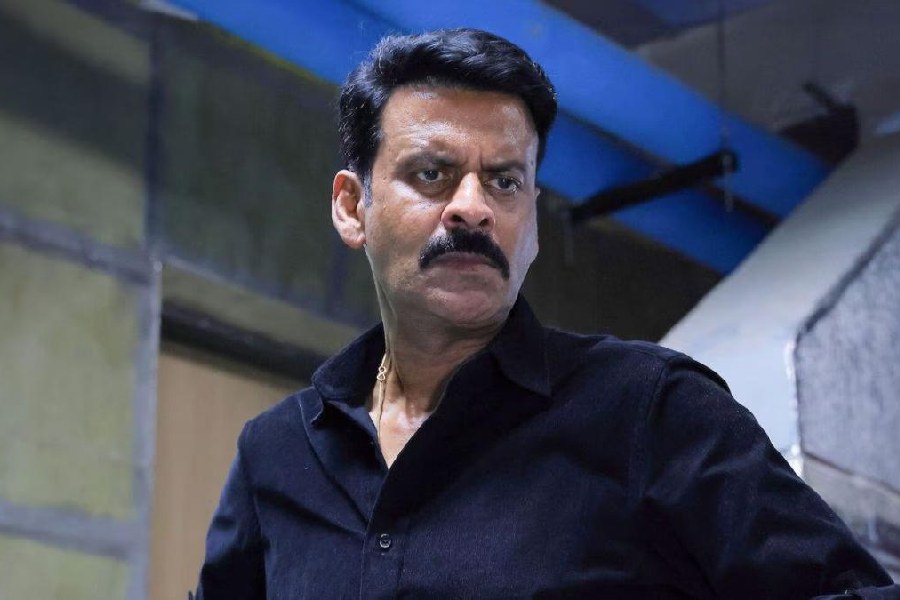 |
 |
 |
| Hear, hear: (From top) Marat Bisengaliev, conductor of SOI; a SOI concert in progress; and Russian conductor Alexander Anissimov, who has also wielded the baton for SOI |
The story goes that maestro Mehli Mehta, the founder of Bombay Symphony and the Bombay String Quartet, was so dismayed by the city’s indifference to western classical music that he finally left India in 1955 — never to return for the remaining 47 years of his life.
After many winters of discontent, spring is in the air in the city that so disappointed Mehta. The Symphony Orchestra of India (SOI) is preparing for its fourth season with Madame Butterfly in February with an international roll call. Indian musicians have found paying jobs at the SOI. Ticketed events have drawn full houses. On an average, a city notorious for cramped apartments now averages one acoustic piano sold daily. And a year down the line, the city will have its first world classical music festival.
Parvesh Shah teaches piano at the Mehli Mehta Music Foundation set up by Zubin Mehta, conductor of the Israeli Philharmonic Orchestra and son of Mehli, housed in the old worldly Banoo Mansion in downtown Mumbai. Shah — who gave up his job at Tata Consultancy Services to pursue his dreams — is an indicator of how things are looking up. “I am not completely guided by my love for the art; that would be foolish,” says the young teacher who profitably traded one kind of keyboard for another following an increasing demand for piano lessons. The Foundation currently has about 100 students and a waiting list of 40. “Five years ago two concerts a season were held twice a year. Today there are five or six fully booked concerts a year,” he says.
Indeed, there are visible signs that the western classical music scene is being energised in an unprecedented manner, influenced by many unconnected dots.
An early initiation is taking place with the arrival of international schools that have mandatory music study. There are also diplomatic efforts to boost the city as an international business centre with more entertainment options. Global tastes in music are also finding expression through the baton of Kazakhstan’s Marat Bisengaliev, who is the conductor of the year-old SOI. SOI has also hired 12 full-time Indian musicians.
SOI is an apt illustration of how ambitious western classical music devotees now are. K. Suntook, vice chairperson of the National Centre for the Performing Arts (NCPA), of which SOI is a part, combines a vast musical knowledge with an undiminished sense of loss for the “magnificent five-foot-nothing” philanthropist-patriarch of the NCPA, Jamshed Bhabha. Bhabha, who died in May, had gifted the 1,109-seater Jamshed Bhabha Theatre to the NCPA some years ago, suitable for staging western operas and ballet.
A few months before his death, during rehearsal by SOI, Bhabha noticed Suntook distractedly drumming the table. Perceptive as always, Bhabha dispatched his driver to fetch his cheque book from home. After rehearsal, Suntook had some news to share with the musicians: they had just got a donation of Rs 1 crore.
The genesis of SOI lay in an evening walk in London in 2005 when Suntook saw a poster of conductor and violinist Bisengaliev. “He decided to pop into St James’s Church where the West Kazakhstan Philharmonic Orchestra happened to be performing. Straight after the concert, I received their invitation to visit Mumbai,” says Bisengaliev, who now divides his time among the UK, Kazakhstan and India.
Not far from the NCPA at the southern tip of the city, Anthony Gomes is in one of his two western musical instruments shops that was recently turned into a piano-only store. “Western classical music is not a profession yet but it is a serious hobby here,” says Gomes who sells 400-500 pianos a year with price tags ranging from Rs 84,000 to Rs 35 lakh. He points out that in Mumbai alone over 2,500 students take the Trinity College of Music exam every year.
Dutch consul general Hans Ramakar has been an unflagging collaborator in promoting western classical music in Mumbai. “If the city wants to be considered a serious international financial hub, you need more after-office options than shopping and fine dining. You need world class entertainment, and SOI is a big step in that direction,” says the diplomat.
Ramakar has found unusual allies in his pursuit: proponents of Indian classical music who struggle with diminishing interest in their genre. This alliance will be seen at the World Music Festival (WMF) slated for December 2008 where both kinds of classical music will be heard. The WMF will feature several international orchestras, including classical jazz, from countries such as Austria, Switzerland, Japan and Italy.
Actively involved with the WMF is fellow traveller Jassubhai Shah, consular general of Germany in Mumbai. “It is my endeavour to see that SOI becomes a regular repertoire of the NCPA which has one of the country’s finest cultural centres,” says Shah.
“We want to put Mumbai on the world music map,” stresses Shah, who also runs a foundation for music. “Who knows, we could some day have another L. Subramaniam and Zubin Mehta emerge from our repertory,” he says.
Had Mehli Mehta been around, he may have wanted to revisit his spurned city.










